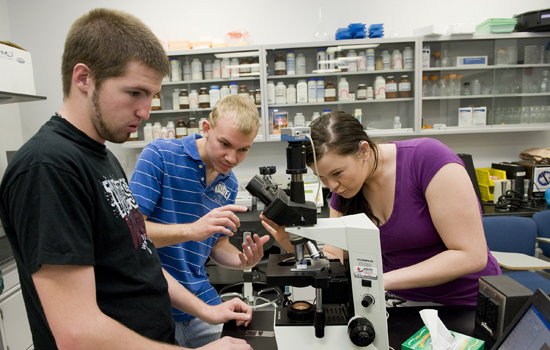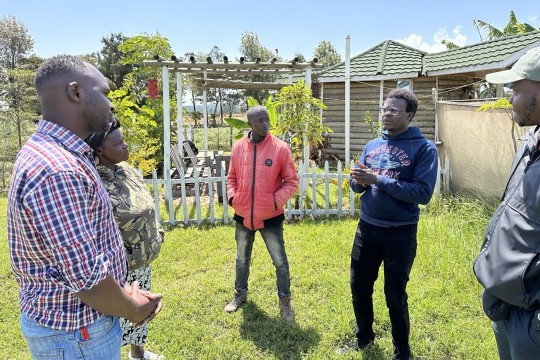NTID receives $4 million boost for DeafTEC program
National Science Foundation pledge will help continue DeafTEC work promoting education, hiring in STEM disciplines
RIT/NTID’s DeafTEC program received $4 million from the National Science Foundation to continue its mission of providing resources for deaf and hard-of-hearing education.
The National Science Foundation has renewed its pledge to funding resources for deaf and hard-of-hearing education by awarding an additional $4 million to Rochester Institute of Technology’s National Technical Institute for the Deaf to continue DeafTEC: Technological Education Center for Deaf and Hard-of-Hearing Students, an Advanced Technological Education National Center of Excellence. The gift is the second largest NSF award in RIT history. The largest NSF grant awarded to RIT was given four years ago when the foundation pledged $4.45 million over four years to initially fund the center.
“DeafTEC’s goal has always been to successfully integrate more deaf and hard-of-hearing individuals into the workplace in highly-skilled technician jobs in which these individuals are currently underrepresented and underutilized,” said Donna Lange, NTID’s principal investigator on the project. “Although some progress has been made, people with disabilities, particularly Americans who are deaf or hard-of-hearing, continue to be employed at rates much lower than the rest of the population. This renewed funding will help DeafTEC to continue to reduce this inequity by increasing the access that deaf and hard-of-hearing students have to career information, to a technical education, and to unrestricted employment.”
DeafTEC is developing a model within targeted regions of the country, including California, Texas, Florida and multiple locations in the Midwest, through partnerships with high schools, community colleges and industry with the goal of building a professional community that will improve access to technological education and employment for deaf and hard-of-hearing students.
Partnership activities include professional development for educators, specifically related to best teaching practices and providing instructional materials and strategies for helping deaf and hard-of-hearing students develop skills in math and writing, and for employers on how to successfully integrate deaf and hard-of-hearing employees into the workplace. The program also works with community colleges to develop strategies for recruiting and retaining students in STEM programs, and introduces deaf and hard-of-hearing middle- and high-school students to STEM programs and careers via job shadowing, field trips and internships.
“This new NSF funding will help us to provide valuable online resources and curricular materials for students to develop job readiness skills and for secondary teachers to learn to address the needs of their deaf and hard-of hearing students, with all of it available online nationally,” added Lange. “We are also proud to work with our returning military veterans, many of whom have hearing impairments as a result of their active service. We are developing resources for community college instructors to address the academic challenges that student veterans with hearing loss face in STEM programs.”
According to Lange, through another DeafTEC program, RIT/NTID STEM courses are currently offered for credit to deaf and hard-of-hearing high school students across the country, and articulation agreements are being developed to help transition deaf and hard-of-hearing students form high school to college.
“We are pleased that the National Science Foundation has renewed its commitment to and funding for NTID’s innovative DeafTEC program,” said NTID President Gerry Buckley. “DeafTEC will broaden the participation in technical careers among deaf and hard-of-hearing individuals by providing them, as well as their teachers, counselors, employers and co-workers, with the resources that will help them succeed both in the classroom and on the job. The center’s emphasis on universal design and math and English resources can benefit students with language difficulties as well as students who are deaf and hard of hearing. The regional partnerships established in three different states can serve as a model that can be replicated in other regions as well as with other groups of underserved students.”
DeafTEC is housed at NTID, one of RIT’s nine colleges. NTID was established in 1965 to reverse the long history of under-employment and unemployment among our nation’s deaf and hard-of-hearing citizens. More than 1,300 deaf and hard-of-hearing students are fully mainstreamed on RIT’s campus with 17,000 hearing students.














